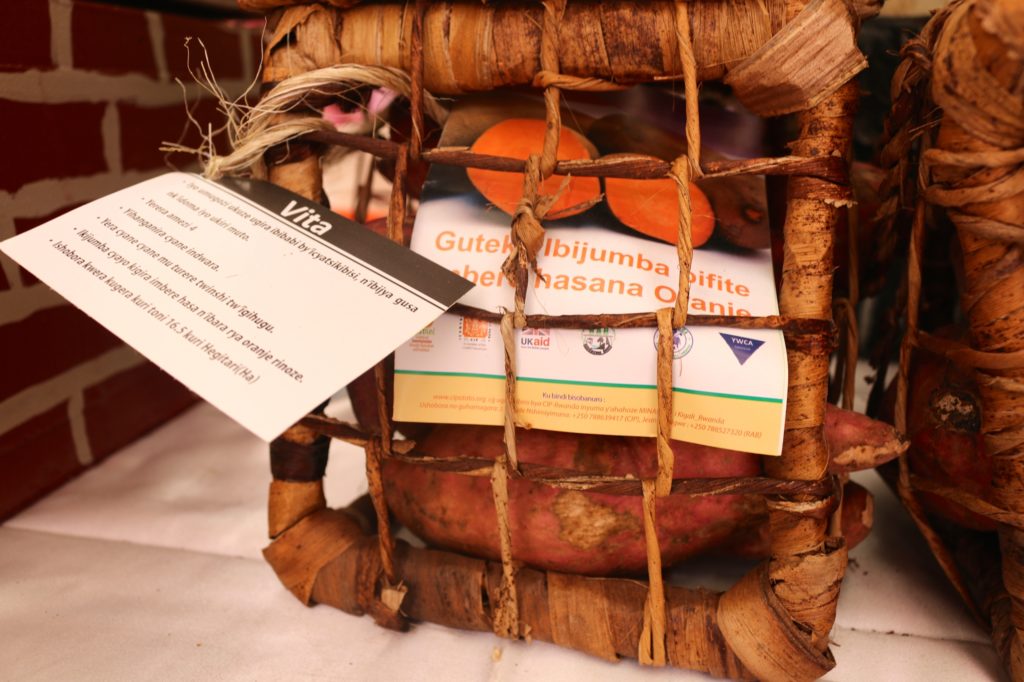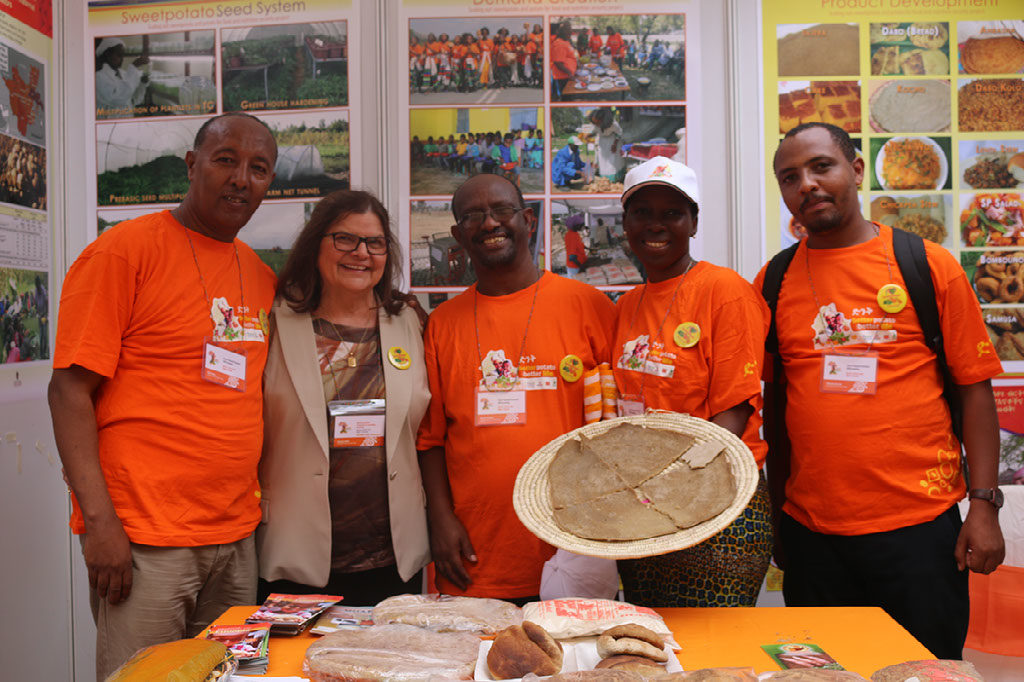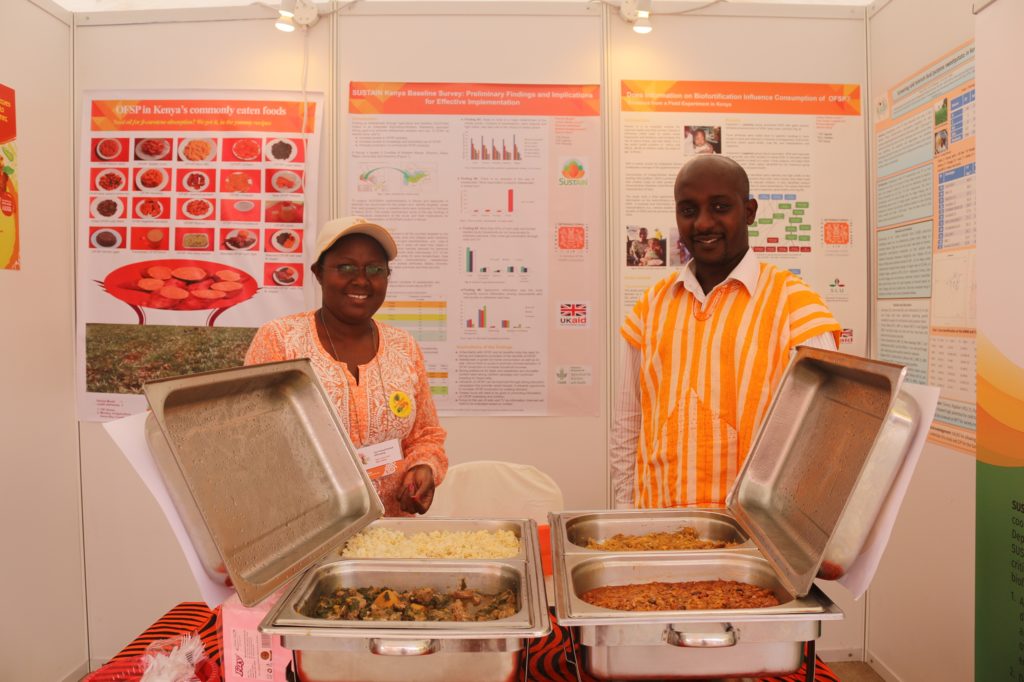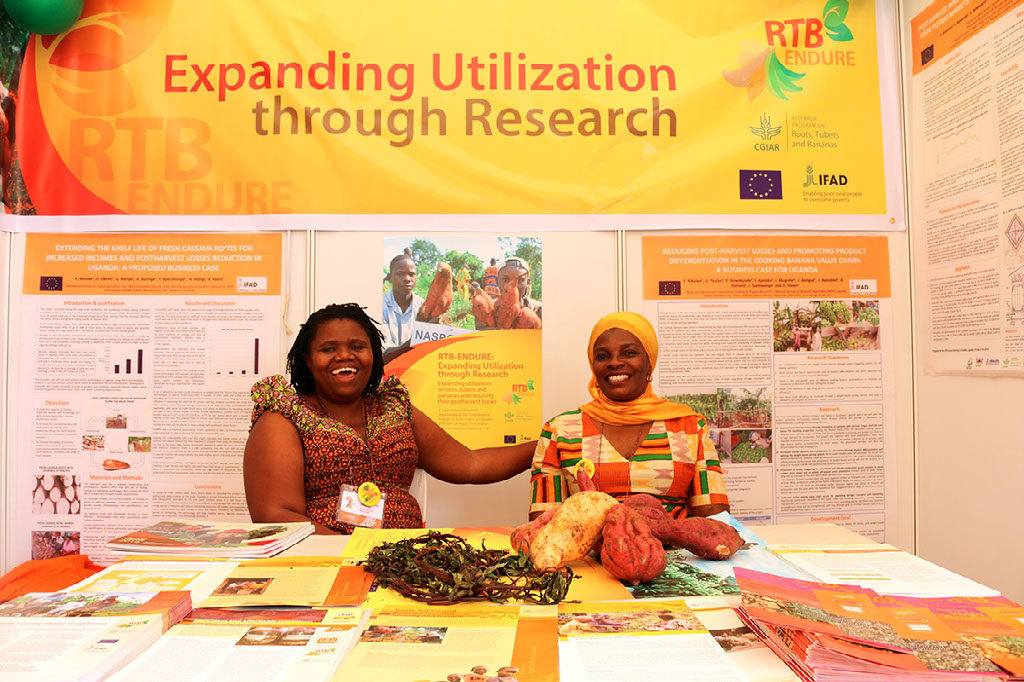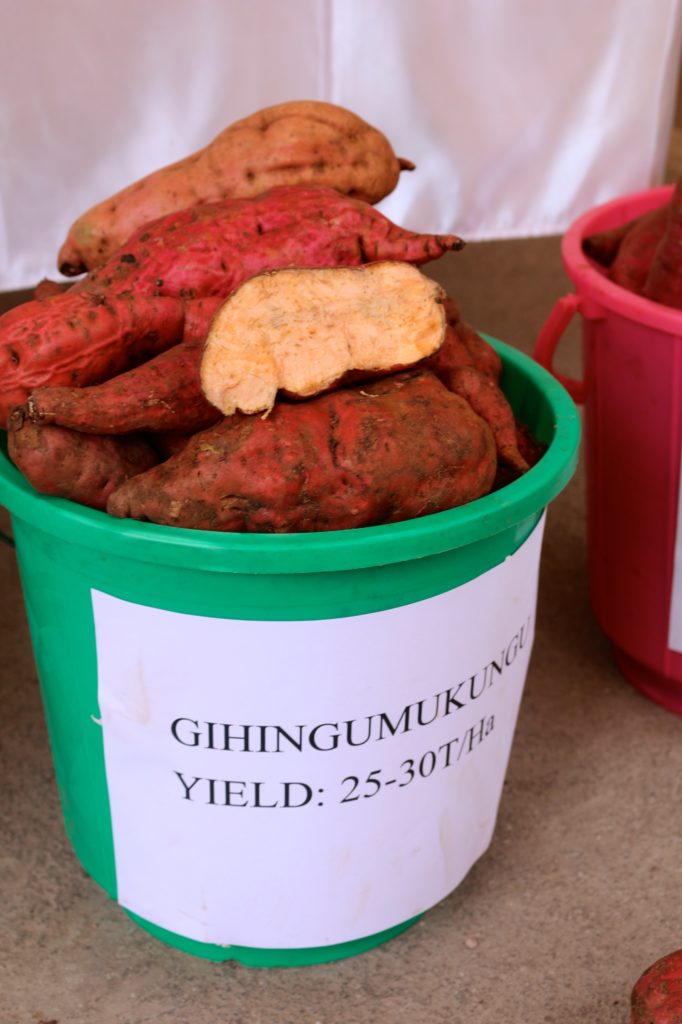“Our theme at this 6th Sweetpotato for Profit & Health Initiative (SPHI) meeting is Together – 10 million by 2020. And now you know why. No one organization can do this alone. It is not only going to take a village. It is going to take this coalition of committed practitioners and scientists to make it happen.” Dr Barbara Wells, Director General of the International Potato Center at the opening ceremony of the I Love Sweetpotato exhibition
The beautiful rolling hills of Kigali are today taking second place to the dazzle of orange that greets guests as they enter Hotel Villa Portofino in downtown Kigali. Orange is everywhere….orange tents are being decorated with balloons and streamers; brightly colored Kitenge cloth from across Africa decorates the tables and chairs; and men and women dressed head to toe in orange are keeping busy putting the final touches on their display.

